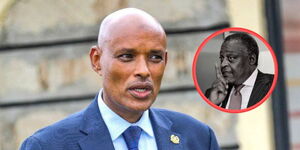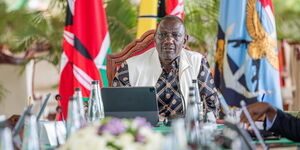Energy Cabinet Secretary Charles Keter explained why the cost of electricity continues to be high despite public outcry and repeated promises of taming the cost of power.
Keter on Wednesday, March 10 during a meeting with the Senate Committee on Energy said that the transmission of the electricity which goes to far ends of the country has technical limitations.
"When a faulty line in the rural area requires repair, it will take the same amount spent on urban areas and that is despite the service charges signed by the consumers," Keter said.
The CS further said that they operate based on a limited budget from the government and sometimes are forced to depend on supplementary budgets to ensure that transmission of electricity is uninterrupted.
The meeting was an induction and familiarisation session of various projects that are being done by the Ministry of Energy.
The meeting Was attended by the Committee's chair Hon. Ephraim Maina, Chief Administrative Secretary Zachary Ayieko, KPLC Chief Executive Officers Bernard Ngugi, Rebecca Miano of KenGen, Fernandes Barasa of Ketraco, Jared Othieno from GDC and Peter Mbugua from REREC.
The cost of electricity has been high with many Kenyans opting to use solar systems in an effort to reduce their expenses.
Recently, Kenya Tea Development Agency (KTDA) applied for a license to generate its power using solar in early March of 2021.
KTDA said that the move would help the company cut its power bills by half.
However, the government has been making attempt to ensure that they make electricity available in all households and ensure that its cost is manageable too.
In January 2021, the government announced that 2.4 million families in Kenya would benefit from a plan that seeks to connect households to subsidized power.
"The government is set to boost power generation from the current 2,819 MW to over 6,700 MW with major energy sources being geothermal, coal, and wind, solar and hydro," a report submitted by the Treasury CS Ukur Yatani read in parts.












